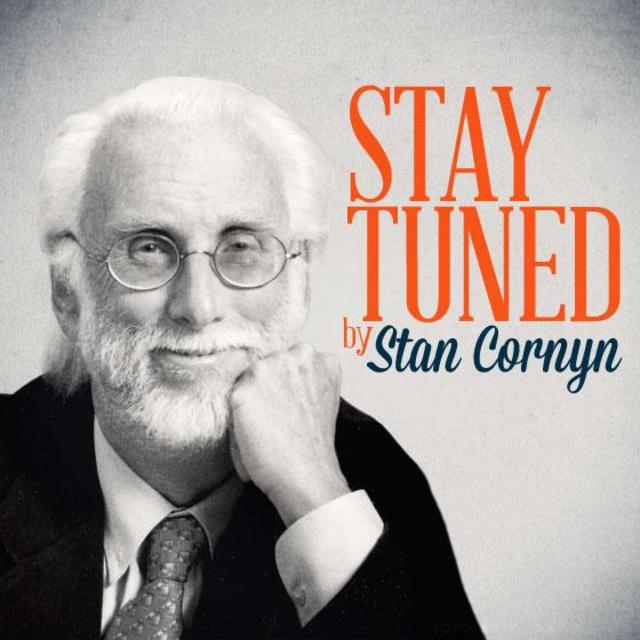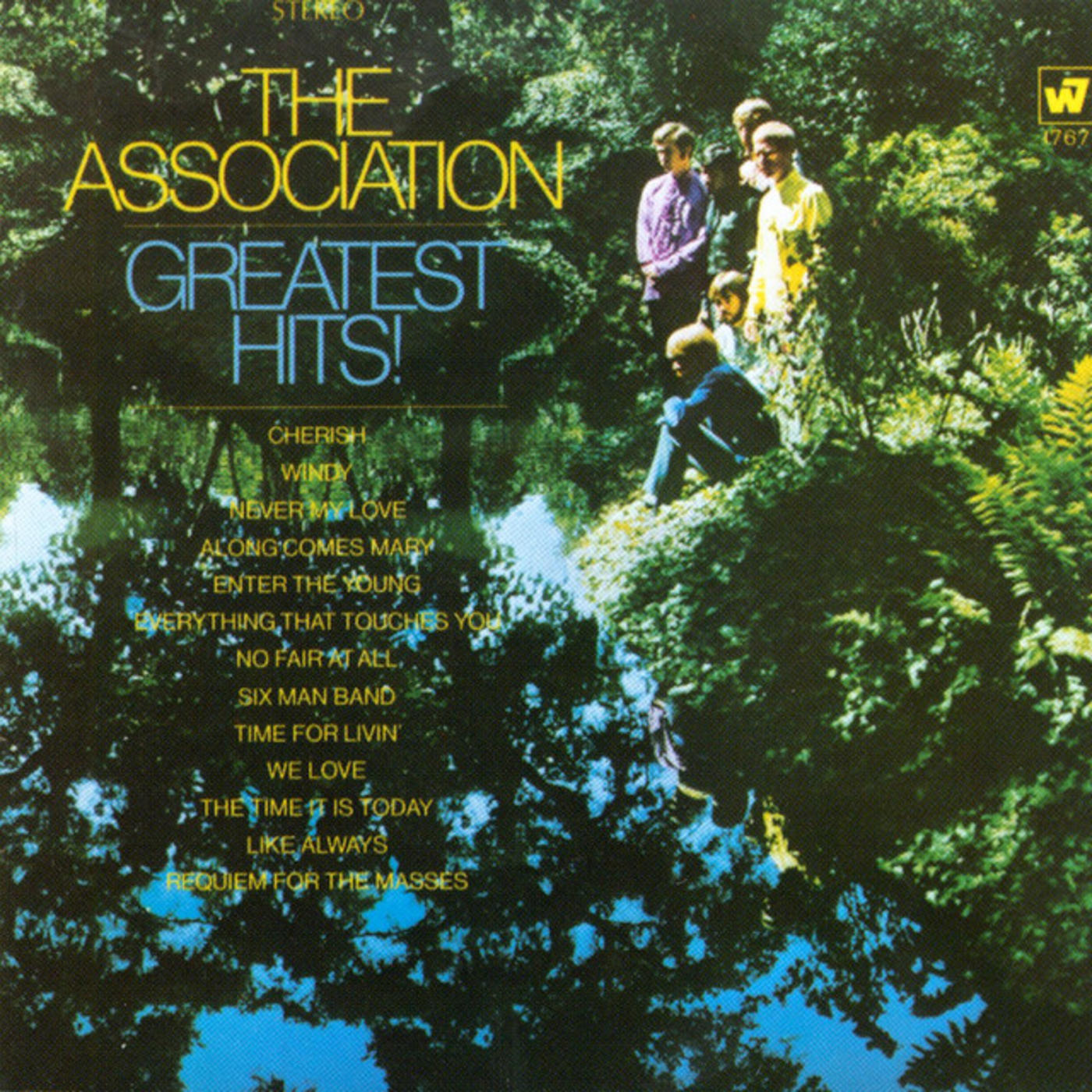Stay Tuned By Stan Cornyn: The Association – #1 Best-Dressed

Every Tuesday and Thursday, former Warner Bros. Records executive and industry insider Stan Cornyn ruminates on the past, present, and future of the music business.
1966-1967
By 1966, “pop” music had reached a crossroads. One road ahead would remain warm, smooth, and in tune. Groups traveling that road sang good songs. All male “pop” groups wore suits and ties.
But other roads now featured druggies. Singers on those roads yelled the words. They played guitars that screeched. Their clothes were tie-dyed.
In the news, more and more, were battles in Vietnam, heading toward full war. But there also was war on the music “club” scene.
Soon enough, say 1968 if you like to point fingers, the screechers would triumph, taking over the Sunset Strip and Soho.
But at this one point – 1966-1967 – one group that wore matching ties could still be the opening act at the Monterey Pop Festival, open the fete singing generously, harmoniously, then bow and get off the stage before the screech came in a-roaring on.
That opening act was The Association.
That act deserves respect, because by 1967, no group sang better.
It faced a change in popular music from which it would never recover.
There had been many in’s and out’s from The Association up ‘til this pose. What the varieties of the group had in common, however, were that all of them sang on their songs (although not necessarily the lead vocals); that all of them played instruments on stage (four on guitar; two on percussion and wind); and they did not dance on stage.
The Association was, indeed, the last of a breed that included other song-groups like the New Christy Minstrels, The Lettermen, and The Hi-Los.
They’d been playing around Los Angeles, in small gigs (like The Ice House in Pasadena) and spending months getting their music together. They wanted to open well-rehearsed, so that a record label might take a chance. Eventually a little label called Valiant Records signed them.
Valiant (Not a Prince)
Two men on the edge of the L.A. music scene had begun Valiant Records back in 1960: songwriter Barry DeVorzon and manager Billy Sherman.
By the time they’d found The Association, they’d signed a dozen little-remembered acts, like Shelby Flint (1961’s “Angel on My Shoulder”) and Barry (himself) and the Tamerlanes (1963’s “I Wonder What She’s Doin’ Tonight”). Valiant remained small.
Small stays small, often, in the talent business. Valiant had put out 110 singles, and from those had had two hit singles in six years.
The Association Make Hits
Album One:
“And Then … Along Come The Association.” The group’s first hit single, “Along Comes Mary” hit #7, and the album that held it hit #5. It ran the under-three-minutes tradition at 2:45.
Check out “Along Comes Mary” at the Monterey Pop Festival here:
Radio loved “Mary,” written by Tandyn Almer and was produced in his sunshine rock style by the equally barely-remembered Curt Boettcher. The public, in part, was tickled by “Mary,” suspecting it was code for marijuana.
Every time I think that I'm the only one who's lonely
Someone calls on me
And every now and then I spend my time at rhyme and verse
And curse those faults in me
And then along comes Mary
And does she want to give me kicks, and be my steady chick
And give me pick of memories
Or maybe rather gather tales from the fails and tribulations
No one ever sees
Then Came More:
In going over songs for the album, Valiant had been iffy about a song called “Cherish.” They felt it sounded “too old and archaic.” But… then let it in.
Cherish is the word I use to describe
All the feeling that I have hiding here for you inside
You don't know how many times I've wished that I had told you
You don't know how many times I've wished that I could hold you
You don't know how many times I've wished that I could
Mold you into someone who could
Cherish me as much as I cherish you
And I do... cherish you
And I do... cherish you
Cherish is the word
In order to pare down the running time of “Cherish,” the producers cut one of the “And I do…cherish you” lines at the song’s end, getting its length down from 3:25 to 3:13. Boettcher then cheated, listing its length on the single’s label as 3:00. A small sin in the record business.
Then a second single emerged from this first album, and “Cherish,” went to – hey! -- #1 on Billboard’s singles chart in September (still 1966).
Watch a clip of “Cherish” from 1966 here:
After those sales, no one at the label complained that “Cherish” sounded “archaic.” Association member Jim Yester later put it this way: “Cherish just showed we can have our archaic and eat it, too.”
Warner Buys In
As The Association arose in 1966, and the group found interest from Warner Bros. Records, Sherman and DeVorzon sold their little label and all its artists to WBR.
Shelby Flint had Valiant’s third-ever single hit that year (“Cast Your Fate to the Wind”) but WBR’s clear interest was in The Association.
Sold. The group and its manager, Pat Collechio, found a real record label in Burbank. In 1967, Warners let the rest of Valiant Records go to sleep in its vaults.
The second Association album, “Renaissance”(1967), did not do well. No singles.
So, go to Album Three. “Insight Out.”
The Association switched producers now (early 1967), opting for a man who both handled the sound in the booth and handled the sound of the music: Bones (no one calls him by his birth name: Dayton) Howe. Bones brought pro savvy to the production.
Want better percussion from the group? Bones hired the best drummer in town, Hal Blaine, for the sessions. Howe knew how.
Two mighty singles would emerge. First: "Windy," which made it to the top: Billboard’s Hot 100 to #1 on July 1. (And the album from whence went to #8.) Hearing the original performance of “Windy” as a folk-waltz, Bones suggested that the Association de-waltz it, moving from 3/4 waltz time to 4/4 rock time. Or what was getting known as “good ears” in the studio biz.
Hear "Windy":
That sound, combining studio savvy and Association smooth, worked. When The Association were selected to open the first night at the Monterey Pop Festival that summer, Bones was hired to handle the audio knobs in the sound booth for that one appearance (as well as back four days later for the closer, The Mamas and Papas).
This best year for smooth pop vocal groups would climax in October, when the Association’s next single came out: “Never My Love.” To get quickly to the point, this record was eventually named “the second most-played song on radio and TV for the entire 20th century” by BMI. (The other top tune was The Beatles’ “Yesterday.”)
You ask me if there'll come a time
When I grow tired of you
Never my love
Never my love
You wonder if this heart of mine
Will lose its desire for you
Never my love
Never my love
What makes you think love will end
When you know that my whole life depends
On you (on you)
Never my love
Never my love
You say you fear I'll change my mind
And I won't require you
Never my love
Never my love
How can you think love will end
When I've asked you to spend your whole life
With me (with me, with me)
“Never My Love” made The Association very popular TV stars, too, singing on TV from Hullabaloo to The Smothers Brothers.
Perhaps Americans, especially its grown ups, needed this dreamy music to counteract the headlines of the late 60s, both Vietnam and acid-dropping teens and twenties. The world out there had seemingly gone ape shit. Better to hear harmonies from dual lead vocals, harmonies that felt as good as whipped cream.
Who's peekin' out from under a stairway
Calling a name that's lighter than air
Who's bending down to give me a rainbow
Everyone knows it's Windy
Who's tripping down the streets of the city
Smilin' at everybody she sees
Who's reachin' out to capture a moment
Everyone knows it's Windy
More albums by The Association would follow, but their role as America’s best-feeling record makers was being usurped in 1968. The Association disappeared off the charts, replaced by Jimi Hendrix and The Grateful Dead.
Their major road to the public – AM radio – would get by-passed. Younger record buyers, like the 18 to 25 crowd, got the feeling that the Association was “uncool.” Music magazines described them with terms like “bubblegum.”
But many, THE many, can still hear those songs, and bless their ears for it. Some of the most beautiful “rock” records ever made.
- Stay Tuned

